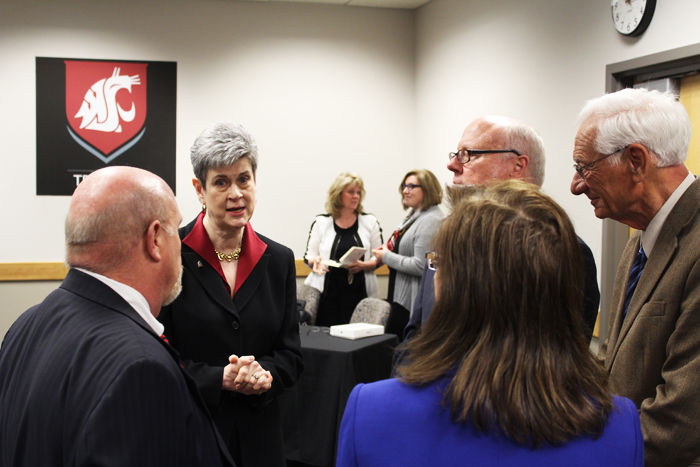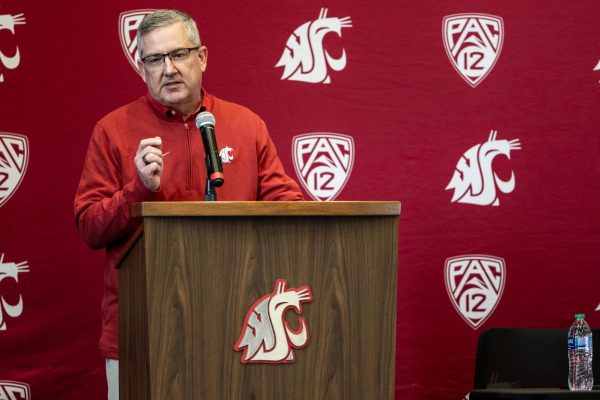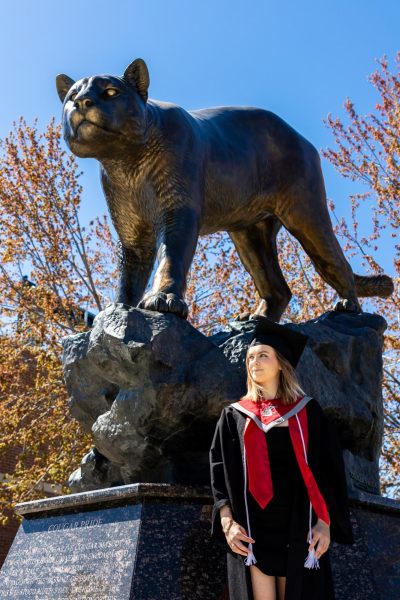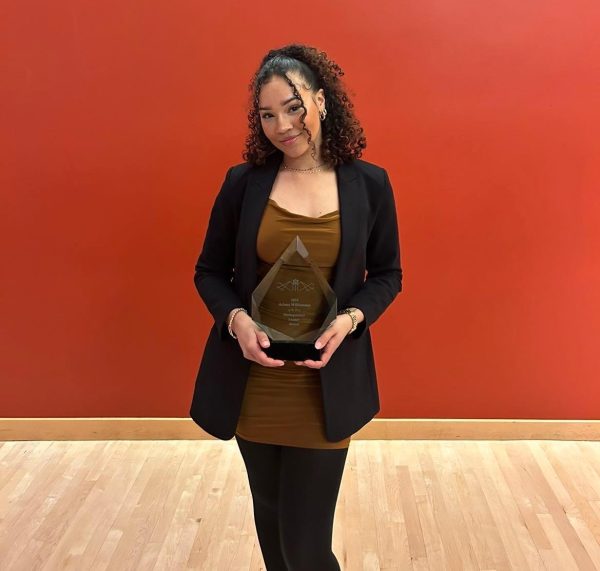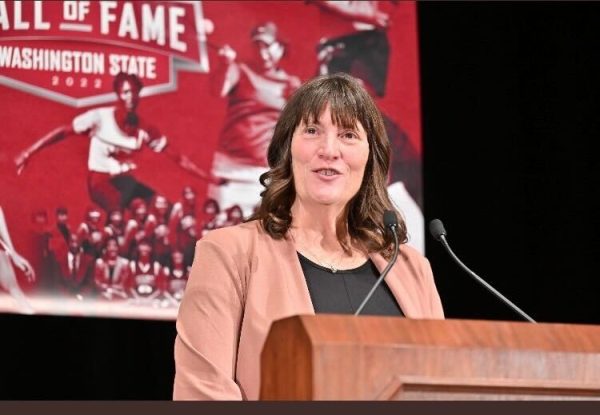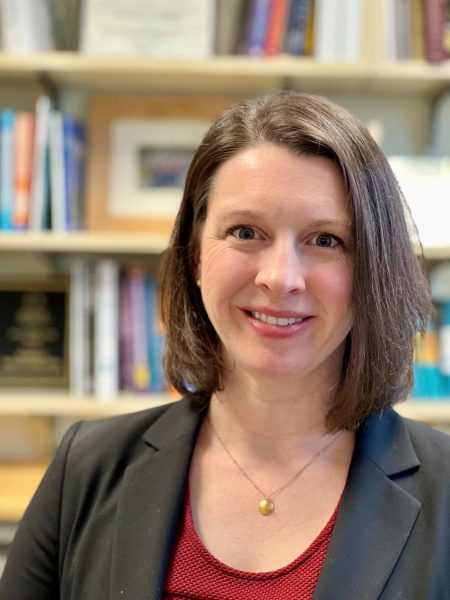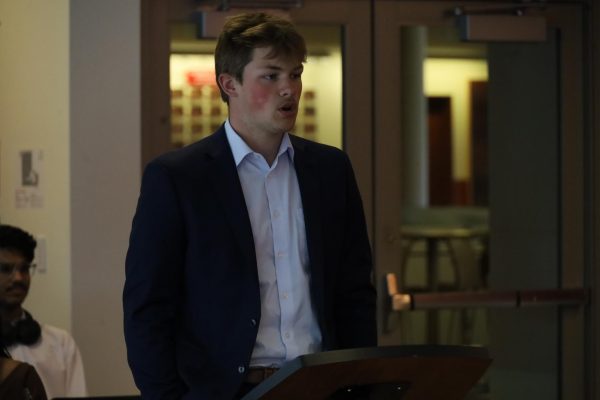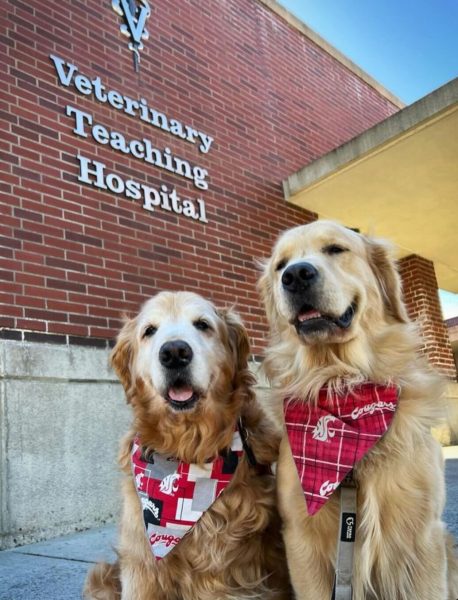Regents’ vote for president may have violated open meeting laws
Regents speak together after the Friday meeting in which the new WSU president, Kirk Schulz, was announced.
March 30, 2016
{{tncms-asset app=”editorial” id=”8363f9cc-f629-11e5-8910-e321e291a4c2″}}
By referring to finalists in code as candidates A, B and C, the WSU Board of Regents may have violated state open meeting laws when it selected a new university president on Friday.
The discussion continued in this coded manner until all the regents expressed unanimous support for “candidate C.” Only after a closed-session phone call to the unknown finalist did the regents reveal Kansas State University president Kirk Schulz had accepted the position.
Michele Earl-Hubbard, media law attorney and vice president of the Washington Coalition for Open Government, said this unusual method of discussing the candidates suggests that deliberation occurred outside of the public meeting. She said both this and the act of disguising their names are breaches of the Open Public Meetings Act.
“To come before the public in an open meeting and talk about candidates A, B and C is … a violation, and frankly, it’s silly,” Earl-Hubbard said. “The public has a right to know the candidates that are being evaluated.”
Any action taken at a meeting which violates these laws can be voided, Earl-Hubbard said. But more importantly, she said, covert operations such as these can adversely affect public trust.
“When agencies act in secrecy, or they act trying to hide what they’re doing, they lose the confidence of everyone they represent, and people stop trusting what they do behind closed doors,” Earl-Hubbard said. “To me that’s a cost you can’t remedy, you can’t rectify that.”
Board of Regents Chair Ryan Durkan wrote in a statement that the regents sought counsel from the Attorney General’s Office throughout the search process. The Open Public Meetings Act permits discussion of applicant qualifications, and the Public Records Act protects applicants’ identities, she wrote.
Michael C. Worthy, chair of the Presidential Search Advisory Committee, said at the meeting on Friday that legal consultants were present at two executive sessions during which regents interviewed finalists. He said he is highly confident that the board adhered to open meeting laws.
“Although we understand opinions can differ on the best search process, our process was compliant with the law and what the regents deemed to be in the best interest of WSU,” Durkan wrote.
Highly-qualified candidates would not have applied for the position without assurance of confidentiality, Durkan wrote. The secrecy of the search allowed for the best possible pool of applicants.
Former state auditor Brian Sonntag said both the letter and spirit of the law are clear, and that public bodies ought to conduct public business in public.
“It’s never going to be wrong to open the doors and let people in to see what their government is doing,” Sonntag said. “I don’t think it’s healthy to ever start shutting out the public.”
The Board of Regents will hold another open-session meeting to formally approve Schulz’s employment contract and appointment as president.


